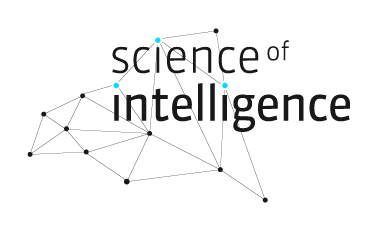(salary grade E13 TV-L, under the reserve that funds are granted, starting not later than from 1.10.2021 / for 3 years / closing date for applications 20.11.2020, Ref SCIoI-C3-35)
The Technische Universität Berlin invites applications for a position for the Cluster of Excellence “Science of Intelligence”.
What are the principles of intelligence, shared by all forms of intelligence, no matter whether artificial or biological, whether robot, computer program, human, or animal? And how can we apply these principles to create intelligent technology?
Answering these questions – in an ethically responsible way – is the central scientific objective of the new Cluster of Excellence Science of Intelligence (www.scienceofintelligence.de), where researchers from a large number of analytic and synthetic disciplines – artificial intelligence, machine learning, control, robotics, computer vision, behavioural biology, psychology, educational science, neuroscience, and philosophy – join forces to create a multi-disciplinary research program across universities and research institutes in Berlin. Interdisciplinary research projects have been defined (https://www.scienceofintelligence.de/research/projects), which combine analytic and synthetic research and which address key aspects of individual, social, and collective intelligence.
Working field
“Deep, differentiable networks for robust real-world robot behavior”
Artificial neural networks are inspired by their biological counterparts. Progress in AI and robotics indicates that indeed this inspiration has transferred important aspects of computation from biology to computer science. Differentiability and recurrence are two recurring computational patterns that one can find in biology and in artificial neural computation, e.g. in recursive Bayes filters and in recurrent neural networks (RNN). In this project, we will identify specific computational patterns capable of generating intelligent behavior in the real world based on sensory feedback. Good candidates for such patterns are networks of differentiable Bayes filters. In collaboration with behavioral biologists, psychologists, and cognitive scientists, we will take inspiration from known aspects of human and animal cognition. Our goal is to identify computational patterns for intelligent behavior and to demonstrate their effectiveness in real-world robotic systems.
Requirements
- MS degree in computer science or similar field; PhD is desired
- Research experience in robotics, machine learning, computer vision, and/or control
- Experience in applying (deep) learning to robotic control problems
- Interest in interdisciplinary research in the context of the Center of Excellence “Science of Intelligence”
- Excellent software engineering and programming skills in C++ and/or Python
- Excellent English writing and communication skills; good German language skills or the willingness to learn them
Application procedure
Candidates should upload their application preferably via the portal www.scienceofintelligence.de/jobs in order to receive full consideration.
Applications should include: motivation letter, curriculum vitae, transcripts of records (for both BSc and MSc), copies of degree certificates (BSc, MSc, PhD), abstracts of Bachelor-, Master, and PhD-thesis, list of publications and one selected manuscript (if applicable), two names of qualified persons who are willing to provide references, and any documents candidates feel may help us assess their competence.
By submitting your application via email you consent to having your data electronically processed and saved. Please note that we do not provide a guaranty for the protection of your personal data when submitted as unprotected file. Please find our data protection notice acc. DSGVO (General Data Protection Regulation) at TU website quick access 214041.
To ensure equal opportunities between women and men, applications by women with the required qualifications are explicitly desired. Qualified individuals with disabilities will be favored. The TU Berlin values the diversity of its members and is committed to the goals of equal opportunities.
Technische Universität Berlin – Der Präsident – Cluster SCIoI, Sekr. SCIoI, Marchstr. 23, 10587 Berlin
